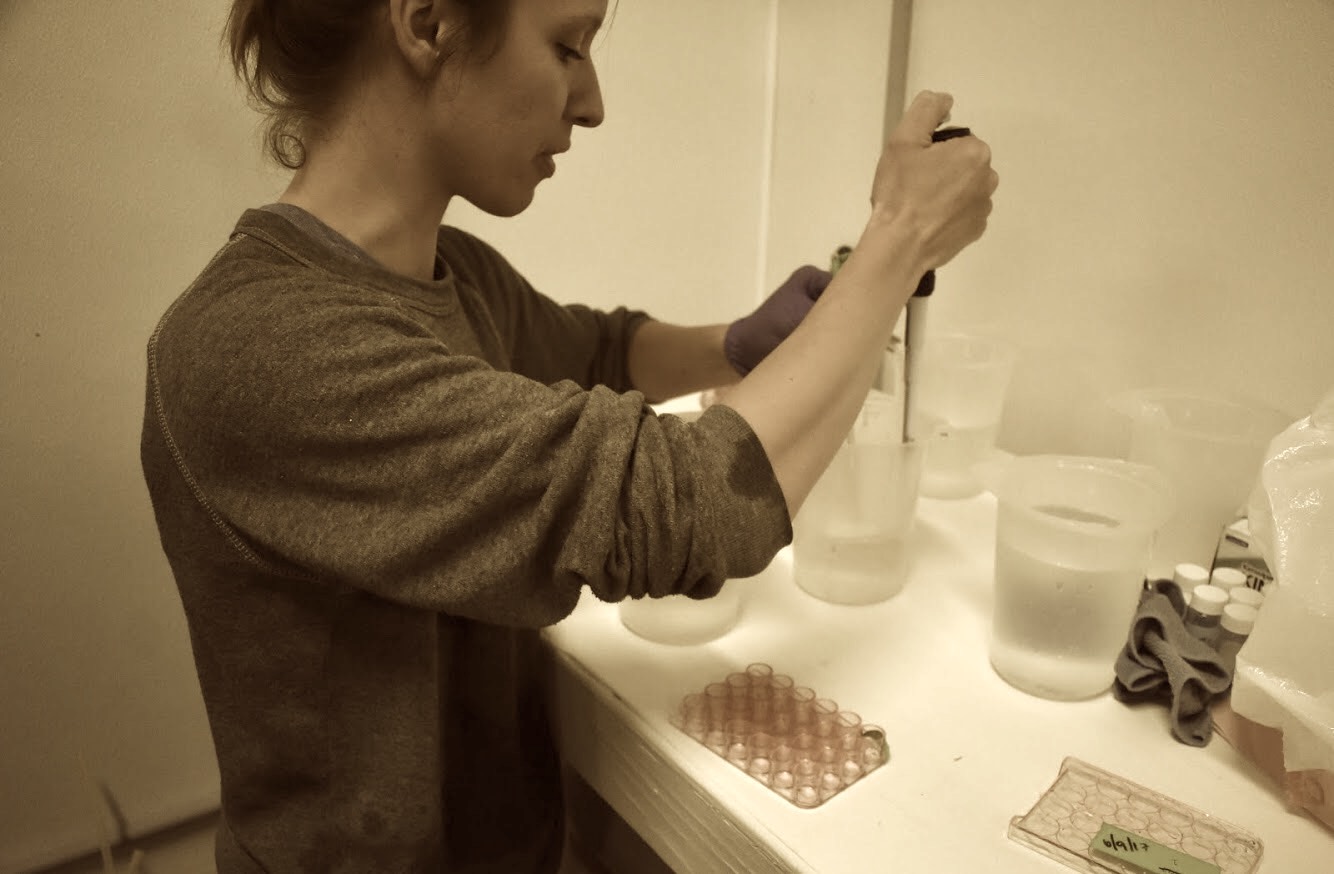GWAS with Pacific cod, Day 1
I’m exploring ways to run genome wide association studies (GWAS) and quantitative trait loci (QTL) analyses. The goal is to identify alleles/SNPs/genotypes that are associated with traits in the juvenile Pacific cod. I have genotypes pulled from liver RNASeq data, genotype likelihoods from lcWGS (depth=3x), and several traits (growth rates, body and liver condition, liver lipid content). I also have a “composite performance index” that I generated from scaled versions of those traits. I am exploring whether genotype likelihoods (GLs) can be used. I got the thumbs up from the tensorqtl folks, indicating that if I format them correctly it shouldn’t be a problem. I don’t have a ton of RNASeq-derived SNPs, and many sites have missing data, but it’s worthwhile to use it for pipeline development and possibly to identify a few genes that contain variants that may influence traits. GWAS/QTL studies typically have loads of individuals (hundreds to thousands). Here we just have genotypes for 20 individuals per temperature treatment from RNASEq data, and likelihoods from ~40/temperature treatment.
GWAS
My first appraoch is to use ANGSD’s to look for associations among traits and the lcWGS-derived genotype likelihoods. Code is based on the ANGSD manual with some pointers by this MarineOmics course files.
Input files:
- Beagle file with genotype likelihoods: I’ll start with GLs that I generated during the WGSassign pipeline, /home/lspencer/pcod-lcwgs-2023/analysis-20240606/experimental/gls_wgassign/pcod-exp_wholegenome_wgassign.beagle.gz
- Traits files: Using R I generated several different files that contain columns of quantitative traits in these order as the samples are listed in the Beagle file. I pulled sample order from the
pcod-exp_filtered_bamslist.txtfile, which I used when generating the Beagle file, and thus has the correct sample order.
java -Xmx15000m -jar beagle.jar like=/home/lspencer/pcod-lcwgs-2023/analysis-20240606/experimental/gls_wgassign/pcod-exp_wholegenome_wgassign.beagle.gz /home/lspencer/pcod-lcwgs-2023/analysis-20240606/experimental/gwas/pcod-exp_wholegenome-wgassign.beagle-imputed
Beagle version 3.3.2 (31 Oct 2011)
Enter "java -jar beagle.jar" for summary of command line arguments.
unrecognized options: [/home/lspencer/pcod-lcwgs-2023/analysis-20240606/experimental/gwas/pcod-exp_wholegenome-wgassign.beagle-imputed]
Exception in thread "main" java.lang.IllegalArgumentException: missing out argument
at c.d.a(Unknown Source)
at c.d.a(Unknown Source)
at phaser.Z.<init>(Unknown Source)
at phaser.PhaseMain.<init>(Unknown Source)
at phaser.PhaseMain.main(Unknown Source)
(tensorqtl-1.0.10) [lspencer@node01 programs]$ java -Xmx15000m -jar beagle.jar like=/home/lspencer/pcod-lcwgs-2023/analysis-20240606/experimental/gls_wgassign/pcod-exp_wholegenome_wgassign.beagle.gz out=/home/lspencer/pcod-lcwgs-2023/analysis-20240606/experimental/gwas/pcod-exp_wholegenome-wgassign.beagle-imputed
Beagle version 3.3.2 (31 Oct 2011)
Enter "java -jar beagle.jar" for summary of command line arguments.
Start time: 02:21 PM PST on 14 Nov 2024
Command line: java -Xmx14500m -jar beagle.jar
like=/home/lspencer/pcod-lcwgs-2023/analysis-20240606/experimental/gls_wgassign/pcod-exp_wholegenome_wgassign.beagle.gz
out=/home/lspencer/pcod-lcwgs-2023/analysis-20240606/experimental/gwas/pcod-exp_wholegenome-wgassign.beagle-imputed
number of markers = 232629
number of haplotypes = 314 (pcod-exp_wholegenome_wgassign.beagle.gz)
Warning: All data sets have > 0.07 missing alleles for the markers in the markers file.
To obtain the most accurate imputation, at least one input Beagle file should be genotyped
for all markers in the markers file and should have < 0.07 missing alleles.
Phasing: iteration 1
Phasing: iteration 2
Phasing: iteration 3
Phasing: iteration 4
Phasing: iteration 5
Phasing: iteration 6
Phasing: iteration 7
Phasing: iteration 8
Phasing: iteration 9
Phasing: iteration 10
Running time for phasing: 16 minutes 40 seconds
Beagle version 3.3.2 (31 Oct 2011) finished
base=/home/lspencer/pcod-lcwgs-2023/analysis-20240606/experimental beagle=${base}/gls_wgassign/pcod-exp_wholegenome_wgassign.beagle.gz impute=${base}/gwas/pcod-exp_wholegenome-wgassign.beagle-imputed.pcod-exp_wholegenome_wgassign.beagle.gz.gprobs.gz
trying association study with imputed genotype probabilities, CPI from all growth & condition indices
angsd \
-doMaf 4 \
-beagle ${impute} \
-yQuant ${base}/gwas/pi.grow.cond1.txt \
-doAsso 4 \
-cov ${base}/gwas/temp-covar.txt \
-out ${base}/gwas/gwas-pi-grow-cond1.out \
-fai /home/lspencer/references/pcod-ncbi/GCF_031168955.1_ASM3116895v1_genomic.fna.fai
-> angsd version: 0.940-dirty (htslib: 1.16) build(Aug 7 2024 11:50:31)
-> angsd -doMaf 4 -beagle /home/lspencer/pcod-lcwgs-2023/analysis-20240606/experimental/gwas/pcod-exp_wholegenome-wgassign.beagle-imputed.pcod-exp_wholegenome_wgassign.beagle.gz.gprobs.gz -yQuant /home/lspencer/pcod-lcwgs-2023/analysis-20240606/experimental/gwas/pi.grow.cond1.txt -doAsso 4 -cov /home/lspencer/pcod-lcwgs-2023/analysis-20240606/experimental/gwas/temp-covar.txt -out /home/lspencer/pcod-lcwgs-2023/analysis-20240606/experimental/gwas/gwas-pi-grow-cond1.out -fai /home/lspencer/references/pcod-ncbi/GCF_031168955.1_ASM3116895v1_genomic.fna.fai
-> Inputtype is beagle
-> Printing at chr: NC_082404.1 pos:13545621 chunknumber 4600 contains 50 sitesDone reading beagle
-> Done reading data waiting for calculations to finish
-> Done waiting for threads
-> Output filenames:
->"/home/lspencer/pcod-lcwgs-2023/analysis-20240606/experimental/gwas/gwas-pi-grow-cond1.out.arg"
->"/home/lspencer/pcod-lcwgs-2023/analysis-20240606/experimental/gwas/gwas-pi-grow-cond1.out.lrt0.gz"
-> Thu Nov 14 14:56:37 2024
-> Arguments and parameters for all analysis are located in .arg file
-> Total number of sites analyzed: 232629
-> Number of sites retained after filtering: 232629
[ALL done] cpu-time used = 96.64 sec
[ALL done] walltime used = 97.00 sec
Here is a good example of a genetic marker, pulled from the lcWGS data, that is associated with growth/condition. This is based on GWAS using imputed genotype probabilities (i.e. NA values filled in) derived from lcWGS data, and a composit index derived from two standard growth rates (wet weight, standard length) and two condition indices (body condition, and hepatosomatic condition). These values were all 0-1 scaled then added: CPI= SGR(sl) + SGR(ww) + Kwet + HSI. Max value is 4. Higher numbers indicate high growth and condition.
For this particular marker, individuals are either homozygous for major and minor alleles of A and G or heterozygos (A/G). It appears that indidivuals homozygous for A have higher growth/condition compared to those homozygous for G/G. Protein is based on a BLAST match.
Here’s are a few more that have pretty good distribution of individuals across genotypes:
Many do not sufficient individuals in all genotypes, but there could be something interesting here:
I’m trying out the program tensorqtl
Giles installed it for me in a mamba environment on Sedna, which I can access using `mamba activate tensorqtl
I’m also interested in using neural network models/approaches to identify Pacific cod sex markers. This tutorial is perhaps a good place to start: https://github.com/miguelperezenciso/DLpipeline
Testing out tensorqtl with RNA-seq derived genotypes ``` mamba activate tensorqtl-1.0.10
#NOTE: Giles said, “One note, make sure to set R_LIBS_USER to blank, don’t have it pointing at your own R library #folder when you go to run this, it will break things.” That variable is indeed set to my R library:
echo $R_LIBS_USER /home/lspencer/R/library
#So before running tensorqtl I did this R_LIBS_USER=
Import things
import pandas as pd import tensorqtl from tensorqtl import genotypeio, cis, trans
Make PLINK files from RNASeq-derived VCF with genotypes
plink –allow-extra-chr –vcf /home/lspencer/pcod-juv-temp/variants/pcod_rnaseq_genotypes-filtered-true.vcf.gz –out /home/lspencer/pcod-juv-temp/variants/pcod-rnaseq_genotypes PLINK v1.90b6.23 64-bit (28 May 2021) www.cog-genomics.org/plink/1.9/ (C) 2005-2021 Shaun Purcell, Christopher Chang GNU General Public License v3 Logging to /home/lspencer/pcod-juv-temp/variants/pcod-rnaseq_genotypes.log. Options in effect: –allow-extra-chr –out /home/lspencer/pcod-juv-temp/variants/pcod-rnaseq_genotypes –vcf /home/lspencer/pcod-juv-temp/variants/pcod_rnaseq_genotypes-filtered-true.vcf.gz
95104 MB RAM detected; reserving 47552 MB for main workspace. –vcf: /home/lspencer/pcod-juv-temp/variants/pcod-rnaseq_genotypes.bed + /home/lspencer/pcod-juv-temp/variants/pcod-rnaseq_genotypes.bim + /home/lspencer/pcod-juv-temp/variants/pcod-rnaseq_genotypes.fam written.
